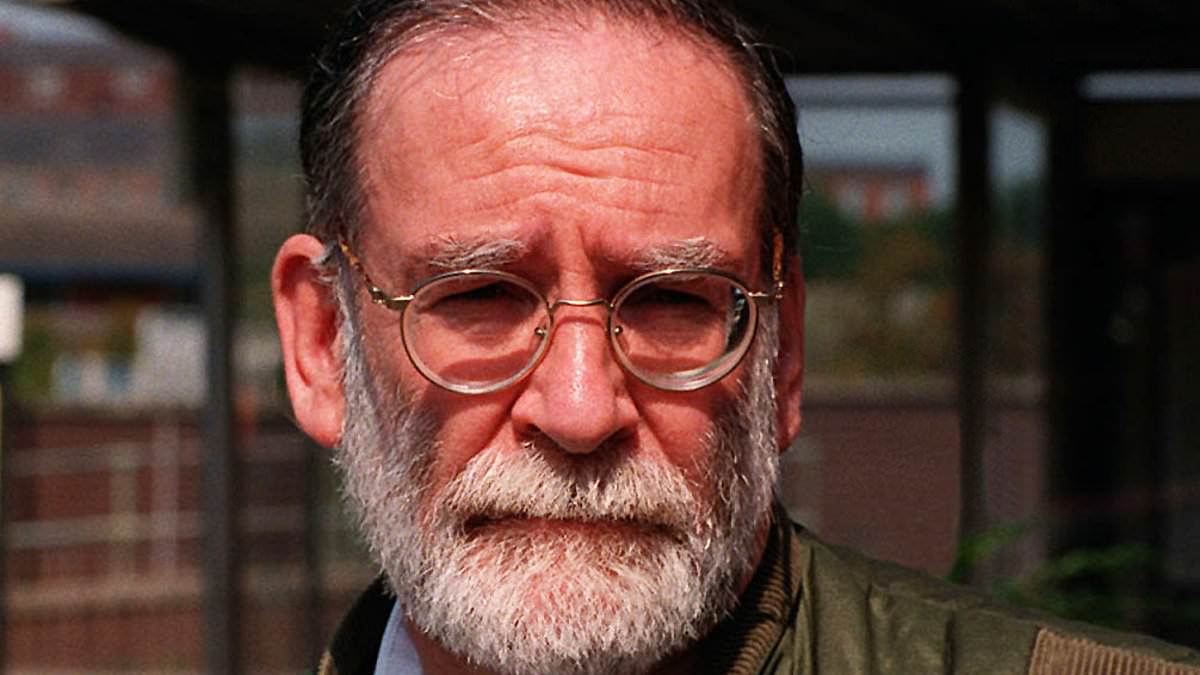From shaking hands with Princess Anne to the ‘arrogant’ courtroom testimony that would prove his undoing, a forensic psychologist traces Harold Shipman’s final months before conviction on a new Daily Mail podcast.
Dr Andrew Johns, a key witness at the Shipman inquiry, tells Psychology of a Serial Killer how Dr Death’s behaviour became increasingly erratic after his 1999 arrest for Kathleen Grundy’s murder.
Shipman, a GP suspected of killing 215-250 patients with lethal doses of diamorphine (medical heroin) between 1975-1998, was finally arrested after an exhumation of Grundy’s body revealed lethal levels of the deadly opiate.
Listen to The Psychology of a Serial Killer below or by clicking here.
Grundy was an 81-year-old pensioner who mysteriously died after being visited at her home by Shipman, her local GP.
After her death, it emerged that Grundy had seemingly left everything to Shipman in her will, raising immediate suspicions and sparking a police investigation.
Following his arrest, Shipman was held at the infamous Strangeways Prison, where his sinister mind began to fully unravel.
Harold Shipman: The Final Months Before Conviction
Despite overwhelming evidence, Shipman maintained his innocence during his remand at Strangeways.
The serial killer charmed guards and inmates with his medical expertise, presenting himself as a wrongly accused doctor.
‘Shipman appeared to adapt to prison life well and told others the accusations against him were false’, Dr Andrew Johns recounted.
‘He insisted on being called doctor and was considered so well behaved that he was chosen to welcome visiting VIPs to the prison.
‘Shipman shook hands with Princess Anne and chatted to her. In letters to friends, he boasted about his Royal connections.
‘He arrogantly told one: ‘It’s a pity Princess Anne looks like a horse.’
‘Shipman saw himself as intellectually superior to other prisoners, holding unofficial surgeries and giving medical advice to inmates and officers.
‘His wife, Primrose, visited him every day with their children. She was described as seeming buoyant, never doubting him. She told others the whole thing was a big mistake.’
During his time at Strangeways, police charged Shipman with the murders of seven more women, meaning the Hyde GP would face a total of 15 murder charges at his trial.
Upon hearing this news, Shipman’s defence lawyers tried to convince him to take a psychiatric assessment, hoping professionals would find him medically unfit.
‘Shipman refused’, Dr Johns said.
‘He did not want his team to run a mental health defence at trial.’
Shipman’s denialism would carry over to his murder trial, with the GP pleading not guilty and demanding to give his own testimony.
In British law, the accused does not have to give evidence at their own trial. Dr Johns suspects Shipman’s ‘arrogance’ influenced this decision, believing he could charm the jury despite the mountain of evidence against him.
‘The evidence was overwhelming’, Dr Johns said.
‘All of the victims had died from morphine which had not been prescribed for them. All had died unexpectedly, and Shipman had seen every victim on the day of their deaths.
‘There was no question of euthanasia or mercy killing – none of the victims had been terminally unwell.
‘The court even heard that Shipman had prescribed heroin for patients who were already dead, stockpiling thousands of milligrams of the drug.’
Nominating himself to give evidence, the prosecution gleefully took the opportunity to grill a ‘nervous and pale’ Shipman for 7 days.
The killer’s excuses quickly wore thin as he desperately tried to rationalise the damning evidence against him.
‘Shipman claimed that the morphine found at his home was a simple oversight’, Dr Johns said.
‘He could not explain why there was morphine found in the bodies of the exhumed victims, other than to claim 81-year-old Grundy was a drug abuser.
‘The prosecution pointed out to Shipman that not once in any of the cases did he attempt resuscitation or call an ambulance or admit anyone to hospital or permit a postmortem.
‘The obvious explanation was that he was guilty.’
On January 31, 2000, Shipman was found guilty of all 15 counts of murder and one count of forgery, receiving 15 life sentences with a recommendation he never be released.
To listen to a dramatic recreation of the Shipman trial, search for The Psychology of a Serial Killer now, wherever you get your podcasts.
